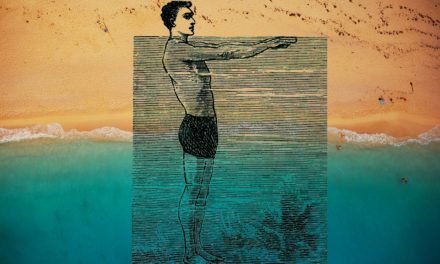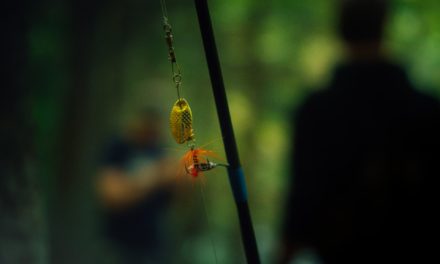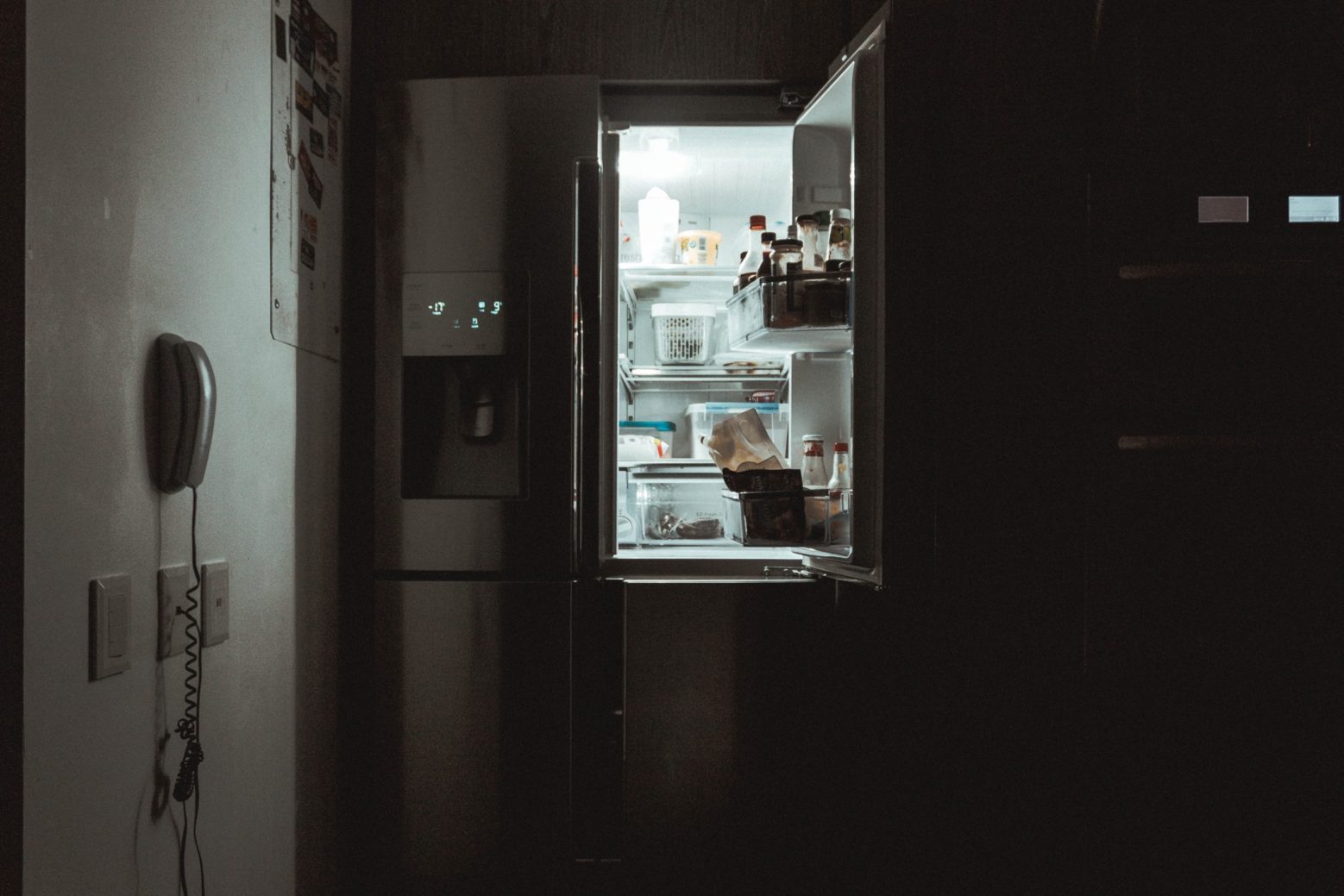Flare
by Toti O’Brien
The antefact remains separated, detached, like a puzzle piece accidentally stored in the wrong box. The scene soaks in a cooler light—as if a distracted editor had misplaced a filter. Continuity is broken.
Nothing too luxurious in the penthouse—just plain, comfortable upper class. It overlooks a bend of the river—a sharp twist, briskly enlarging the view to embrace a wider perspective. A feeling of freedom derives from the expanded landscape, fully enjoyable through the windows occupying two walls of the living room. The curtains are pulled open.
I don’t recall looking at the expanse of roofs and terraces, punctuated by steeples and domes. I must have at least glanced—before one of the leather sofas was courteously pointed to me—because the city sight impregnates my brief recollection, together with a sense of ease, of suspended time. It must have been early evening, or a weekend—mercifulness was in the air. I know it was spring.
The young couple was nice, polite, on the formal side. Both were successful professionals—I don’t recall in which field. I had been warmly recommended by one of my instructors. Though I hadn’t completed my degree, he believed I could cope.
They liked me. I looked trustworthy and confident.
They sounded tired, preoccupied. They looked as if they could use some help. That must have struck a chord. I never saw them again.
***
Relatives (an uncle and aunt) met me at the train station. We left town by car, deepening into a creamy texture of orchards and strawberry fields. Summer had begun.
An old iron gate opened to a long driveway. The villa loomed at a distance—a backlit, somber silhouette. An old mansion, still upright and fairly maintained, yet transuding age like sweat—discretely, secretly crumbling. Past the gate the atmosphere had changed, taking on a plumbeous tone, a tinge of melancholy. The mood switch was due to the vegetation. Dark fir trees punctuated the lawn, thickening in little groves. Ivy covered most of the house and several adjacent buildings. Various climbers roofed verandas, porches, gazebos, and arbors. Tall hedges of laurel and boxwood isolated secret gardens, miniature mazes. None of it looked unpleasant. On the contrary.
The twin sisters knew the gardens by heart. They adored playing tag or hide-and-seek, endlessly pursuing one another on graveled paths, occasionally tripping on protruding roots or misplaced ornamental bricks, to fall headlong—face forwards—and bounce back without a single tear. Grandma or grandaunt, then, tired of running, ushered them towards the front lawn to play ball in the open. Or to use the swing set, giving the adult-in-charge a moment of rest.
Sometimes Lawrence joined—reluctantly and never for long. He preferred the other side of the estate, occupied by stables, pigsties, chicken coops, toolsheds, tractors, haystacks, and all the farm apparel. These grounds didn’t share the penumbra of the landscaped gardens. Fir trees were only visible in the background, where they formed a forest, past few recently harvested fields. Here everything looked bright, barren, burned at the edges. From the fields came an ocher glare. The red bricks of most constructions, piles of earthen pots, and scarlet-painted machinery, added a rosy tint to the whole.
No shade, thus. Lawrence didn’t care, though his skin was freckled and pale, his eyes light blue. His copper mane, thick and coarse, must have shielded him from the sunbeams it seemed to absorb and refract… furry hair, prickling my hand like a brush. Sweat running down his face, mixing with the snot perpetually dripping from his nostrils, didn’t bother him. Nonchalantly, he licked it all.
We liked one another at first sight. While grandmother and grandaunt recited dos and don’ts (aunt and uncle had left me at the gate to never show up again), Lawrence eagerly pulled my hand, anxious for me to join his present activity. The game took place in his territory of choice, where adults felt uncomfortable due to dirt, dust, lack of abiding corners. He was left to himself most of the time. No risk was involved—I was told—at least in daytime. Deeply absorbed in his play, he would go nowhere. And he wouldn’t do anything dangerous, grandma had said.
Lawrence ran in circles. More precisely he danced, with brisk, jagged, jittery steps organized in recognizable patterns. Without words—he didn’t have any; the congenital disease eating his frontal cortex hadn’t allowed language to form—he signaled that he wanted me to do what he did. Simon says.
I had to be precise. While so engaged in his motions he almost looked possessed, he carefully checked on me. When the quality of my reproduction was unsatisfying, he dropped his arms in consternation. He painstakingly exemplified, made me repeat his gestures, grabbed and guided my limbs—often laughing out loud, though with an exasperated edge. Smiling, sometimes echoing his laughter, I complied to the best of my ability. He was nimble and extremely strong—his fingers endowed with an iron grasp, hands like claws.
Constantly interrupting ourselves for choreography’s sake, it took us more than a half hour to make a circular loop. Well-designed—its perimeter now carved into dirt. We followed the same track over and over, sprinkling our performance with variations. Lawrence introduced them each time with a flash of enthusiasm, genuine joy in his eyes. I mimicked him as accurately as possible. My success filled him with unmistakable happiness.
In the blink of an eye the afternoon was gone. At sunset, Lawrence pushed me into the center of the ring we had traced. It took me a little while to understand he wanted me there—still, captive. I complied—it was a game. My role had briskly changed while his mood had imperceptibly shifted. He was still excited, still happy, but the balance between the two variables had been perturbed. Happiness was dimming, fading together with the sunlight, while excitement picked up pace.
He still ran, but he also turned on himself while he jerked his arms, lifted his knees, stumped his feet in a hastened, gradually exaggerated, more accented manner. He became more vocal—I could hear him breathe noisily. Was he working himself into a trance? Perhaps… Certainly. His trajectory spiraled in, though in a measured, controlled manner. Soon enough he had me entrapped in a sort of cocoon, spinning around me a web of frantic motions. He screamed louder—some laughter still mixing in. He was miming the act of tying me with ropes, fingers clawing at my forearms, my ankles, my neck, digging into my flesh.
I didn’t budge. He was extremely intent, yet not violent. Sure as rock, we were playing. Only, the game had become deadly serious. The one thing I shouldn’t do was break the rules. The ropes, in this case.
When grandaunt called for dinner, waving at us from the front lawn, I was exhausted. As I started off he grabbed me with both arms, pulling me down. He was teary, about to throw a tantrum, I feared. Yet he didn’t mean to hurt me. I pointed at the old lady in the distance: “Look, Lawrence! We must go!” I should have managed a smoother transition—more calibered, more respectful. Breaking my ropes so suddenly broke his heart.
Dinner was in a manner of speaking. Lawrence systematically refused to eat, let alone sit at the table for more than a minute. He had nonetheless exceeded the life span associated with his syndrome. Not only. He was tall for an eight-year old, energetic and strong. How was a total mystery, because he ate almost nothing. At the sight of food, he’d invariably clench his jaw, pucker his lips, run away.
For the time being, nourishing him was one of my tasks. I spent dinnertime hunting him through the fields, trying to get him back to the house. Feeling tired, yet far from defeated.
We returned to the mansion quite late. The twins were in bed, the house dark and silent. Finally calm, he sat on a wooden bench in the kitchen, put his elbow on the table and rested his head on his hand. Eerie quietness—I doubted it would last. Meanwhile I was starving. I took a bottle of milk from the fridge, and two cups. Bread, butter, a thick marmalade. I generously buttered two slices, coated them with the good smelling jam.
Lawrence lifted his head, grabbed a slice with a grin on his face, as if he were stealing it. Playing along, I snatched it back. We unconvincingly staggered around the room, pursuing one another in turns. We sat, then we run some more—on and off. He took some hungry bites, crumbled the rest, licked crumbles off his palms, gulped some milk, spilled some, gulped some more. We remained in the empty unlit kitchen for a long time. It felt cozy—a safe place.
In the following days, we repeated our excursions whenever the place was deserted. Odd hours: three in the afternoon, once lunch had been cleared, before dinner preparations begun. Late evening, or just before dawn. The two of us thrived on milk, bread, butter and jam. It didn’t take me long to realize nothing else was needed.
Before-dawn meals were the easiest, most peaceful for some reason. The peculiar calmness of the wee hours might have helped. Or exhaustion did it. Lawrence never slept.
The large bedroom we were assigned inspired Lawrence with infinite horror, judging by the way his features contracted as we peeked inside. An old abat-jour—its shade brittle and yellow—was lit besides the king-size bed where I was supposed to sleep. Only virtually. A small cot had been pushed against the wall, also next to the lamp. Lawrence would sleep there. So to speak.
At the sight of the room, he was overwhelmed by agitation. We had managed to drag him to the second floor, grandma and grandaunt leading the way. We were now in a long, narrow corridor. Chairs were lined against the walls. Grandma had shut behind her the double door leading to the staircase. A window was at the opposite end. Lawrence’s gaze switched from door to window, and back, till the door was slowly pushed open… His small sisters, clad in outdated, long, lacy nightgowns, had sneaked out of bed to enjoy the novelty of my presence, perhaps.
It was late. Lawrence and I had lingered in the kitchen at out heart’s content, indulging in our anachronistic meal. Cute, happy twin girls climbed on adjacent chairs, perching as if about to attend a puppet show, watch a cartoon. Mindlessly, I collapsed near them. Lawrence joined me instantaneously, cradling in my lap like a baby. He purred. Delighted, his sisters laughed. They must had seen this before.
“He thinks he is your kitten,” they explained.
I was moved by his genuine show of tender affection. I welcomed it, indeed. I reciprocated, gently massaging his neck, where tendons were tense like steel. I brushed his mane with my palms. He kept purring. His feline imitation was amazingly good. Only, he had long overgrown the kitten stage. I felt I was holding a lion cub. Or a tiger.
Right on! I couldn’t avoid yelping with pain. Slyly, he had plugged his teeth in my forearm, biting deep and hard. Somehow, I managed to keep my arm limp until he let go. I surrendered, by instinct, to prevent further struggle. But he didn’t mean evil—the bite was a teaser, an invitation to play. His sisters were giggling.
Meanwhile he had grabbed my hand, clumsily placing it on his head. I brushed his copper hair. He wiggled in my lap.
“He is your kitten!” One of the girls started clapping.
I’m not sure how we coaxed him into bed. I briskly woke up in mine. I was wearing my nightgown, though I didn’t recall putting it on—a long cotton dress, fairly decent. Fully awake, I stared into darkness. All was perfectly quiet. Too quiet. Lawrence’s cot was empty. My heart leaped up to my throat. I jumped out of bed, barefoot on the stairs, barefoot on gravel, on dirt. Instinct carried me towards the stables, the haystacks, where our afternoon play had taken place.
No Lawrence. I proceeded across fields to where the tall trees went wild, morphing into a wood. Was it where I would hide, if I were he?
He was not trying to conceal himself. He sat in full sight, his back against a trunk. He let me take his hand. We walked back very, very slowly. I understood this was the night game he must have elaborated at length. He escaped, surreptitiously waiting for his guardian to fall asleep. He moved silently. He ran, trying to make it as far as possible, as fast as possible. Although his destination (I later verified) were always the woods. Did wilderness call him? Maybe he simply liked the scent of pines, the murmur of branches.
Of course, the pattern was repeated ad libitum. Ad eternity, I mean. Lawrence never slept.
On the following blur of nights and days, punctuated by our chopped meals in the kitchen—milk spilled in rivulets, sliding on marble veins, bread crusts floating like boats, rocks, small islands, butter melting with jam into soft mud—I understood how everything ran in circles. Spirals, I mean, with me attached to the totem pole in the center, helping to secure the rotation—Atlas carrying the world on her bent shoulders. Fine. The job was a paid one.
The daytime game was always the same. I was the prey Lawrence needed to capture, tie up, trap, then dance around. I was offered no active part ever again. The instructions delivered on our first encounter weren’t repeated. Maybe they were a demonstration of his own role, a courtesy. Now I should stick to mine, which wasn’t hard, though slightly claustrophobic.
He never hurt me, besides those sudden bites, finding me unprepared. He was fast like a gunshot—he knew how to surprise me. His jaw locked like a snare snapping on a rabbit paw. My forearms and calves were tattooed with round marks, finely indented. Yes, everything ran in circles. My attitude regarding the bites was still quiet surrender. I should not tense, and he would let go. Yet fear clawed at me underground, in spite of self-control.
Kitten-cradling recurred after sunset—a sweet recapitulation. Escapes into the woods with subsequent return-promenades enlivened our nights. All in all, we walked miles. From night two I took the time to wear sandals. Grandma and grandaunt suggested I block the bedroom door with furniture—closing it with a key wasn’t advisable. I agreed. I wouldn’t feel comfortable in a locked chamber. Claustrophobia was already in the air in spite of our nightly excursions. I could stack chair upon chair… the noise of their un-piling would wake me, should I unwillingly catnap. But would I be able to keep Lawrence inside? Till morning? What for? To give him a fit? Would he go to sleep, were he forbidden to run? Forget it. Following the rules he’d established was best.
Only, long-term sleep deprivation isn’t sustainable.
I collapsed on day four. At sunrise I had made up my mind. We had skipped our before-dawn snack—I couldn’t muster my energy, make it to the kitchen, open the marmalade jar, cut the bread. He must have missed that bit of fuel—he sat aimlessly on a chair, in the corridor. After throwing my few belongings in my backpack I went past him, kissed the top of his head—his hair prickly on my lips. I felt like a traitor. Fucking coward. Only, I could stand it no more.
I am going—yes—right now. I am sorry. Can’t do this for longer.
His relatives were unimpressed. Not even disappointed. Used to this scene, I’m sure. Blasé. They were gathered in the kitchen—twin girls sitting at the table, bedecked with large bibs, spoons dipping into pastel colored mugs. They stared at me, quickly. I thought I saw a tinge of sadness in their eyes. Maybe I was wrong.
No, please. Don’t need a lift to the station. I don’t. Stay.
Down the path I went, past the gate. Don’t look back. Here’s the concrete and out goes your thumb. This will not be long. A truck stopped immediately. The fruit trees along the road sickened me with bittersweet nausea. A bit later, the train lulled me to an irresistible slumber. Only at home, that night, I realized I had left my nightgown under the pillow of the oversized bed. I felt maimed, oppressed by needless regret.
***
Later, I received a thank you note from the parents. How grateful they were! I had allowed them the nicest weekend in years. They had felt carefree, unburdened, enjoying one another’s company to the full. No nurse, no babysitter had ever lasted three days.
I didn’t buy it.
Purple rings remained on my limbs for a while, like loops of a dismembered chain. Like planets belonging to another, distant galaxy. When I sat in the proximity of someone—a girlfriend, for instance—I’d suddenly twitch, shifting my arm away in protection. Ashamed, I did not try to justify my behavior. Luckily it didn’t last.
In the following months Lawrence’s games kept haunting me. I felt stuck, compelled to revisit his world again and again. I wondered what inspired the rituals he had created for himself, and the good-willing visitor. Where had the prey-catching, pole-tying, mad dancing come from? Was he ever exposed to a movie, a cartoon? Told a story? Did someone read to him? I guessed not. Didn’t think his attention could be captured for long by an outside stimulus.
I suspected the small realm he had discovered pre-existed in his brain. In mine too. He inhabited it, all the time, for lack of an elsewhere language would have provided. Yet he thrived in that primitive universe, where everything circled around because time didn’t exist. As well as good and bad, love and hate didn’t. The division between eating and being eaten was tenuous—prey and predator fluctuated on the edge of oneness, irresolute like the borders of day and night.
In the following months I didn’t show up at the Children Hospital, where I was pursuing my Rehabilitation degree. Almost there, but I left my dissertation unfinished and flunked my last exam. My career went down the drain and I stopped eating, limiting myself to a slice of buttered bread consumed when hunger won me, alone in an empty kitchen. Confronted by the choices of adulthood I vacillated then ran, choosing wilderness. Of course, seeds for my failure had been sown long before.
I heard Lawrence survived yet a few more years, definitely overshooting the mark illness had set for him. How did he? I couldn’t forget his burning drive, the way his fingers or teeth clamped my flesh. As if he were grasping at life, making it very clear he wouldn’t let go. Didn’t want to. Not wasting a minute to sleep. Running out to the woods in order to be rescued, again and again. Burning, burning, burning.
Toti O’Brien is the Italian Accordionist with the Irish Last Name. She was born in Rome then moved to Los Angeles, where she makes a living as a self-employed artist, performing musician and professional dancer. Her work has most recently appeared in Biostories, Colorado Boulevard, Poeticdiversity, and Soundings East.






